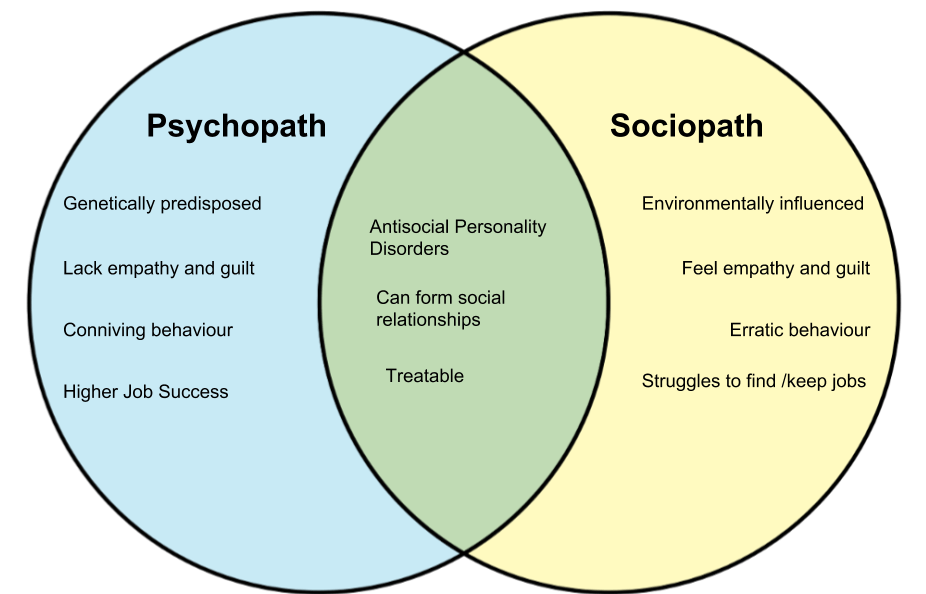A common topic that psychology is known for falls under a variety of names: sociopathy, psychopathy, and popularly presented serial killers and/or mass murderer phenomenon in TV shows and movies around the globe. However, as much as most of America’s younger generations seem to be intrigued by fictional psychopathic vampires or even non-fictional, yet infamous serial killers that have since been executed. One example is Ted Bundy, who is often revered as the “OG serial killer” who inspired the strengthening and becoming of the current FBI BAU (Behavioral Analysis Unit). According to the BAU, Ted Bundy is a classic high functioning psychopath with antisocial personality disorder.
Most people are unaware that in the official Diagnostic and Statistical Manual of Mental Disorders (DSM-V is the most recent update), sociopaths and psychopaths do not appear as a possible diagnosis. Instead, psychiatrists diagnose people with antisocial personality disorder, which groups together psychopaths and sociopaths. Someone diagnosed with antisocial personality disorder are described to “have a poor inner sense of right and wrong” and the most significant diagnosing factor is their lack of ability to feel empathy. However, there is certainly more to sociopaths and psychopaths than what is described in the DSM. Also, there are clear differences between sociopaths and psychopaths that researchers have discovered.
Sociopaths tend to appear as nervous and easily agitated. Many psychologists theorize that the cause of the development of sociopathy is due to genetics and environment. Not at all like the cold, calm, and chilling psychopaths seen on TV, sociopaths are very volatile and prone to emotional outburst, including fits of rage. High functioning sociopaths are often able to form an attachment to particular individuals or groups, but will likely struggle with relationships and emotions. Crimes committed by sociopaths are very low in number compared to psychopaths, because any crimes that sociopaths commit will tend to be impulsive and erratic rather than premeditated.
Psychopaths are considered completely unable to form real emotional attachments to others. They view the world completely differently and see other humans as simply pawns to be used for enjoyment and/or to their advantage. Surprisingly though, psychopaths are the ones with the incredibly charming personalities that can manipulate people easily. Due to mimicry of other people’s emotions that they observe throughout their lives, some psychopaths are able to have families and establish long term relationships. One very significant difference to note is that psychopaths’ are more than likely to engage in criminal behavior and nearly 50% of all serial killers have been unremorseful murderers such as: Ted Bundy, Dennis Rader (BTK), and John Wayne Gacy. Neuroscientist James Fallon from UC Urvine School of Medicine has given PET scans to the brains of dozens of psychopaths and found many abnormalities that indicate that psychopathy is mainly, if not completely, genetic and random (not “passed down” from parents).
This is a topic I’m incredibly interested in, but as for this blog, it unfortunately ends here. But don’t worry! I will write about the brain scans of psychopaths in a future blog. (I will link it here when it’s up: click here for my blog on brain scans of psychopaths!)




